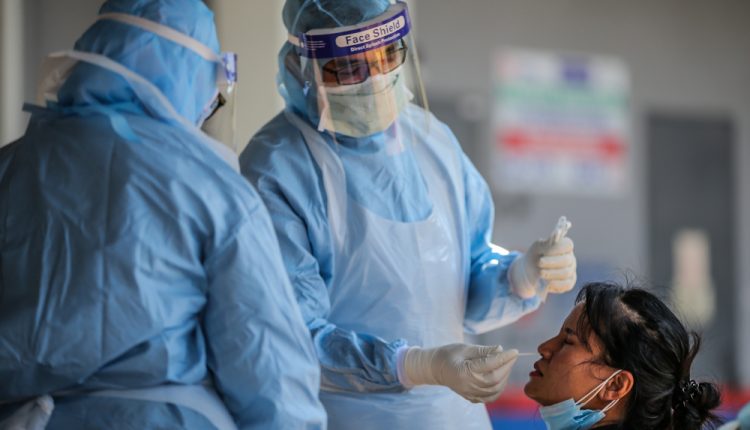KUALA LUMPUR: The Malaysian Health Ministry said on Monday (Dec 28) it still had the capacity to accommodate COVID-19 patients, while acknowledging there were logistical issues in transferring positive cases from their homes to hospitals for quarantine and treatment.
In his daily press conference on Monday, health director-general Dr Noor Hisham Abdullah said the delays, mainly in the Klang Valley, were due to the rise in the number of positive cases.
“Our primary focus is on groups, say groups of foreigners or foreign workers, where we can send a bus to transfer the whole group to the quarantine centre.”
“But for individuals in different areas, it takes time to transfer them to the two quarantine centres in Selangor and Kuala Lumpur. The capacity to take on more patients is there, but we are looking at the logistics now,” Dr Noor Hisham explained.
He also said that the ministry was trying to increase bed capacity at Malaysia Agro Exposition Serdang, which has been converted from an exhibition venue to a quarantine centre for low-risk COVID-19 cases.
The centre, which reopened on Dec 9 with a capacity of 3,100 beds, had another 3,032 beds added on Monday, with space for 10,000 more if needed.
Dr Noor Hisham added that the ministry was also considering the possibility of quarantining COVID-19 patients at home.
“If we want to carry this out however, we need to evaluate some criteria, such as the suitability of the house, the room, the toilet and so on.”
“We need to look at health assessment tools, and how our officers can monitor someone’s health at home. So we are looking at the possibility, but we have not changed our policy yet. We still quarantine positive cases at hospitals,” Dr Noor Hisham said.
The ministry was also looking at the possibility of using worker dormitories as quarantine centres, as it had done for Category 1 and 2 COVID-19 patients (asymptomatic and light symptoms) in the Teratai cluster.
Dr Noor Hisham advised those who had tested positive to mask and isolate themselves at home, keeping away from family members.
In addition, they should remain in contact with their local district health office to allow officers to keep up to date with their health status, and to facilitate transfers to quarantine centres.
As of Dec 28, Malaysia has 20,643 active COVID-19 cases, with 1,594 new cases registered today. A record 2,335 new infections were reported on Dec 26.
Earlier on Monday, Malaysian media reported Dr Noor Hisham as advising those who had tested positive for COVID-19, but were asymptomatic, to isolate at home as they could not go to hospitals immediately.
This move to self-isolate first, Dr Noor Hisham had explained, was due to the high caseload and logistical issues in transporting patients to hospitals.
Dr Noor Hisham’s response had come in relation to a local business owner’s complaint, questioning how the Malaysian Health Ministry updated its contact tracing activity via the MySejahtera tracing app.
Three of the business owner’s employees had tested positive for the disease, but had yet to be contacted or taken to government hospitals.
The director-general also warned the public in a Facebook post not to lie to healthcare workers about their symptoms, after a doctor serving in Sabah detailed her experience dealing with a patient who had hidden his history of illness while undergoing a CT scan.
The doctor later wrote that she tested positive for COVID-19.
Meanwhile, the conditional movement control order (CMCO) for the states of Selangor, Sabah and the federal territory of Kuala Lumpur have been extended to Jan 14.
The CMCOs were slated to end on Dec 31, following their reimposition on Oct 14, and subsequent extensions.
However, interstate travel was lifted for all states from Dec 7 onwards.
-CNA/vt(ac)

